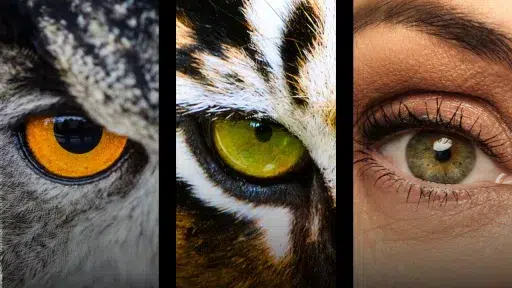With the recent controversy over whether Humanism should be taught in UK RE classes, this belief system is getting more attention than it’s ever done. We thought we’d help out the British Humanist Association with their policy of promoting critical thought around Humanism by publishing a series of posts examining whether Humanism makes any sense at all. Enjoy!
~Humanism & its Discontents: Part 3~
Attempting to critically assess Humanism’s moral teachings is a bit like studying subatomic particles in quantum physics: the closer you look, the less you seem to know. Out of the many moral philosophies on offer, which should we follow? Consequentialism or virtue ethics? Hume or Kant? Is utilitarianism good, bad, or somewhere in between? And who’s setting these rules anyway?
So much for scientific specificity. In the absence of any clear doctrines to critique, one can only go by generalities. Indeed, generalities are the only thing that Humanism can really offer- the more specific we get, the quicker we descend into dissent and disagreements amongst its own ranks. A top-level framework is what is needed, and Humanism’s is essentially to increase well-being and reduce suffering. It’s a position defended explicitly by popular atheist writer Sam Harris, and typifies the Humanist approach. And let’s be honest- it sounds pretty good. Surely every religious person would agree on increasing well-being, and reducing suffering? And if atheists and theists can agree on it, then where’s the need for religion? Can’t we just follow it anyway? Well, let’s find out.
The first and most obvious problem we come across with a principle like this is the issue of utilitarianism. If increasing well-being becomes a numbers game, then surely the heaviest set wins? As such, if I could torture one person and elicit information that could save a hundred, does that make torture OK? Apparently. Similarly, what of situations where an individual feels their well-being increase, without obvious harm being done? Does that make such an action moral? For instance, if someone was inclined towards a consensual incestual relationship, would that be OK? So we are told.
These are common examples, but one is spoiled for choice. Under Humanism’s vague directions, we are left precisely where we began- lost. Take an accountant of the Rothschild’s, the richest family on Earth. Imagine he is one day tempted to steal some money from his luxury-loving employers. Just £1000. He has the skills to easily get away with it. He will certainly benefit from the extra money, and he knows for sure that his billionaire employers will never miss it. He looks at religious morality that tells him such theft is unlawful, and that he will be held responsible. But our accountant is much too enlightened for this religion nonsense. To Humanism he goes! And what does he find? Maximise wellbeing, minimise suffering. Well he thinks, no-one will suffer, and his well-being will increase. And so it would seem that theft is not only not immoral, but positively a good thing!
Then let’s turn to a rather more sordid affair- literally. A married woman and her tempting lover. She finds herself in a dissatisfied marriage, but feels that it could all pick up if she lets herself indulges just once with her new-found friend. She waits until her husband is out of the country so he can’t find out, but then, her conscience prickles. This is adultery. That can’t be right, can it? As she pauses for thought, Humanism, wonderful Humanism, comes to her aid. She remembers that delightful Stephen Fry video which said we should do what makes us happy. Maximise well-being and reduce suffering…
Well, needless to say, she decided to go and maximise her well-being.
The examples are endless. Imagine the criminal, asked if he committed a crime for which there are no other suspects. Lie with no consequence, or tell the truth with punishment? Or the drug addict who’s considering another high, a unique sensory experience that you can’t get anywhere else. Which version of well-being should he follow, and what compelling reason does Humanism give him to follow one path over the other? The reality is that without a justified model of what well-being is, we’re shooting in the dark. We end up with 7 billion different versions of well-being, everyone’s conception clashing with the other’s, and none being any more right than the next one.
And what then of suffering? Is reducing suffering always good, and increasing suffering always bad? Well, what of the mother who deprives her child of his/her wish, out of knowledge of what is best for it? Is that an immoral act? Clearly not- the child may suffer, but the Mother has an endpoint in mind to which it wants to nurture it. So how could the Mother allow her child to go down a path that she knows is harmful with respect to its ultimate end? Thus suffering is sometimes beneficial.
Indeed, not only is sometimes suffering necessary to be saved from the bad, it can be a prerequisite of achieving the good. Can we develop steadfastness without trials? Can we nurture patience without pestilence? Can we summon courage without obstacles? Ask any toiling student, or sweating body-builder, or weary charity worker- suffering is not only something to be avoided, but often something to be sought after. As such, we do not always suffer when are suffering.
It should be clear by now, that empty words of well-being and suffering are meaningless without defining a set goal towards which they are directed. Without this, we may well end up doing harm to someone whilst thinking that we are helping them, or imagine that we are saving them from harm when only holding back from them good. Without such a reference point, the villains of the world will seek to justify the suffering they inflict by the well-being they envisage, and Humanism is unable to coherently justify what makes such a vision wrong. Humanism, by failing to offer a set model of what we should be shooting for, allows our morality to become a slave to transient passions and social pressures. We lose sight of our target, before realising we never had one to begin with.
Religion on the other hand gives us a model of well-being, as articulated poignantly in the Qur’an:
“Surely, I have not created men high and low, but that they may worship Me.”
Holy Qur’an, 51:57-8
The Arabic word used here for ‘worship’ means far more than what we are accustomed to from the familiar school assemblies and occasional Church visit. It means to serve, to assimilate the qualities of a Master, to follow in a beloved’s footsteps. Thus, the meaning of this verse is as the Second Caliph of the Ahmadiyya Community wrote over 50 years ago:
“[One’s purpose] is to subject oneself to a rigorous spiritual discipline, working with all one’s inherent powers and capacities to their fullest scope, in perfect harmony with and in obedience to God’s design, so as to receive the Divine impress and thus be able to manifest in oneself God’s attributes. This is, as stated in the present verse, the great and noble aim and object of man’s creation and this is exactly what worship of God means. The external and internal endowments of human nature give us clearly to understand that of God-given faculties the highest is the one which awakens in man the urge to search after God and incites in him the noble desire to completely submit himself to His will.”
As is clear, the purpose for which we are created is to become Godly, and thus attain the love of our Creator. As imitation truly is the highest form of flattery, we then seek to become a benefit for others in society by mimicking in our own spheres divine beneficence. But that beneficence takes a form, a shape which is in line with the guidance from the Being Who created us. As He knows all our potentials and inner natures, His guidance is the only one qualified to truly tell us what well-being is and how to achieve it. Only He can tell us what suffering we should endure for a higher purpose, and what suffering must be avoided at all costs.
This is the key difference between religious and atheistic morality. Humanism has no basis for calling one thing right and another thing wrong- such concepts are mere illusions according to its prerequisite beliefs. Moreover, it is fundamentally incapable of furnishing us with any useful guidance on how we should live our lives as it has no purpose towards which it can aim. Each person is a law unto themselves, justified in working towards their own idea of well-being and disregarding anyone else’s, whatever the cost may be.
On the other hand, religion calls towards a Divine Creator who has created us with a set purpose in mind. Achieving that aim is what will give us true satisfaction, for we have been constituted as such. We are given models in the Prophets of how to emulate divine qualities and thus win divine love. This is the well-being that religion tells us we were born to seek. It reminds us that within us lurk souls which act as a barometer telling us how well or poorly we are doing this: an in-built navigation system whose call we all hear. The moral and social teachings of God in religious scripture are designed with all our capacities and temperaments in mind, and are thus effective in creating a society which gives everyone the best opportunity to realise their divine purpose- should they so please. Otherwise they are free to ignore their purpose and enjoy the provisions provided to the spiritual and the worldly alike, though by doing so they deprive themselves of the true inner satisfaction which we have all been created to enjoy.
Without such a destination and route laid out by a Creator, we’re completely rudderless, with no lighthouse on the horizon towards which we can sail. Thick waves roll over us, and we are left in darkness no matter the direction in which we turn.
Find out about some of the moral teachings of Islam as explained by the Ahmadiyya Movement in Islam over at trueislam.co.uk











5
4.5